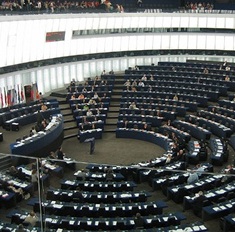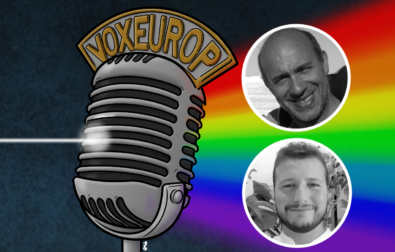The EU's continued failure to connect with European citizens is not inevitable, it's just very likely.
Reports that the European Union is set to take a seat at the UN's big table must come as something of a relief to embattled officials who have been nervously reading the newspapers over the past year.
A rising tide of anti-EU sentiment has been clear for all to see in Finland’s swing to the right, the Netherlands’ growing anti-immigrant sentiment and Germany’s belated, unhappy discovery that doing things for other countries is the other side of the coin of getting its own way with the refried Deutschmark that we all pretend to call the euro. And then there's the breakdown in the Schengen Area agreement on freedom of movement, arguably the single most attractive and useful thing the EU has ever created.
Seen from this perspective, the EU appears to be on the rocks — that is not to say that it won’t survive; those who say these are the final days of Europe are deluding themselves — but whatever shine it ever had appears to have dulled almost to the point of non-existence.
The EU and its staff have never reacted well to criticism. Colleagues tell me that European Commission workers have contrived to label those who criticise them populists, as if responding to the stated desire of the electorate was somehow bad.
The apparent "rise of the right" is a case in point. To conflate the EU with tolerance and by extension, claim its critics are xenophobes would be a mistake. The various national electorates’ imagined connection of the EU with hot-button issues such as immigration is understandable. Those who have argued for open borders are only too aware that national electorates’ fears of immigrants are built on the dunghill of scaremongering, not by tiny right-wing rumps like the British National Party, but by the paranoid policies of mainstream political parties such as the UK’s Labour and Conservatives and their fear of the “beast within” citizens.
Insofar as the EU is representative at all it does, at least, have continuity with the beliefs of the various national political elites — and what they fear most is voters. Ironically it is this very mistrust of the people that itself creates the conditions for the very backlash that now perturbs the EU so greatly. If there is a democratic deficit at the heart of the EU — and there is — it is not helped by politicians, whether national or transnational, attempting to operate over the heads of the citizenry.
It is in the contradictions at the heart of the European project that one finds the cause of its greatest weaknesses. Complaints about an EU superstate fall apart when one considers that those most supportive of the EU project are, like president Herman Van Rompuy and high representative Catherine Ashton, themselves drawn from and appointed by national political elites. If the EU is really building a superstate then it doesn’t even know it itself, nor is it doing a particularly good job.
A noble idea, the EU is unfortunately characterised by a lack of trust in the people of Europe it purports to represent. The frogmarching of the Irish into agreeing to the Lisbon treaty is only really noteworthy to those who have forgotten the treaty was itself a trick to pass into law the European constitution already rejected by the French and Dutch in 2005. I won't even get into the issue of the unwanted "bailout"…
Like many of my persuasion I have long bristled at the word "eurosceptic", a term that brings to mind half-crazed English Tories whose key objections to the European Union are as alien to me as are those parts of the EU itself that I would like to see pass into the pages of history. If we had a genuinely accountable and democratic EU it is likely that many people’s fear and loathing would melt away. I doubt we shall see one any time soon.
A conversation with investigative reporters Stefano Valentino and Giorgio Michalopoulos, who have dissected the dark underbelly of green finance for Voxeurop and won several awards for their work.
Go to the event >










